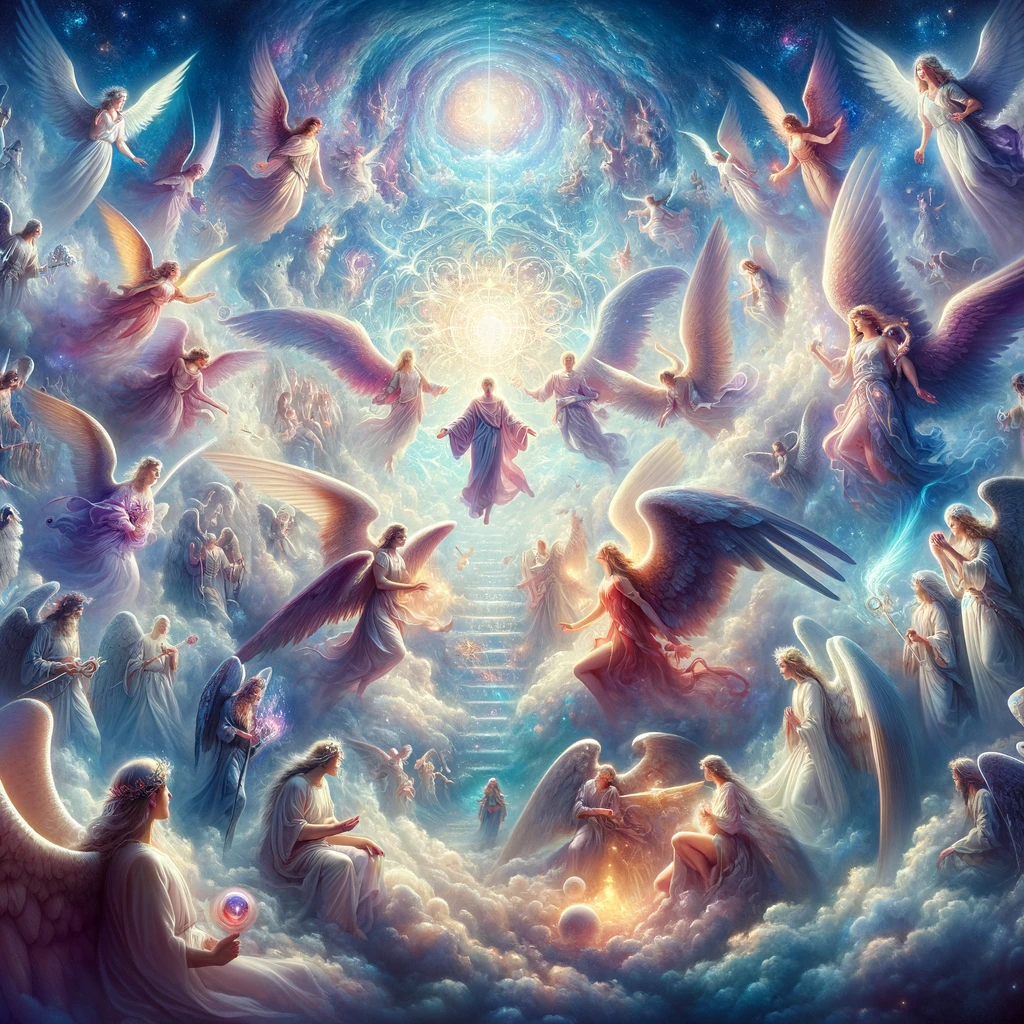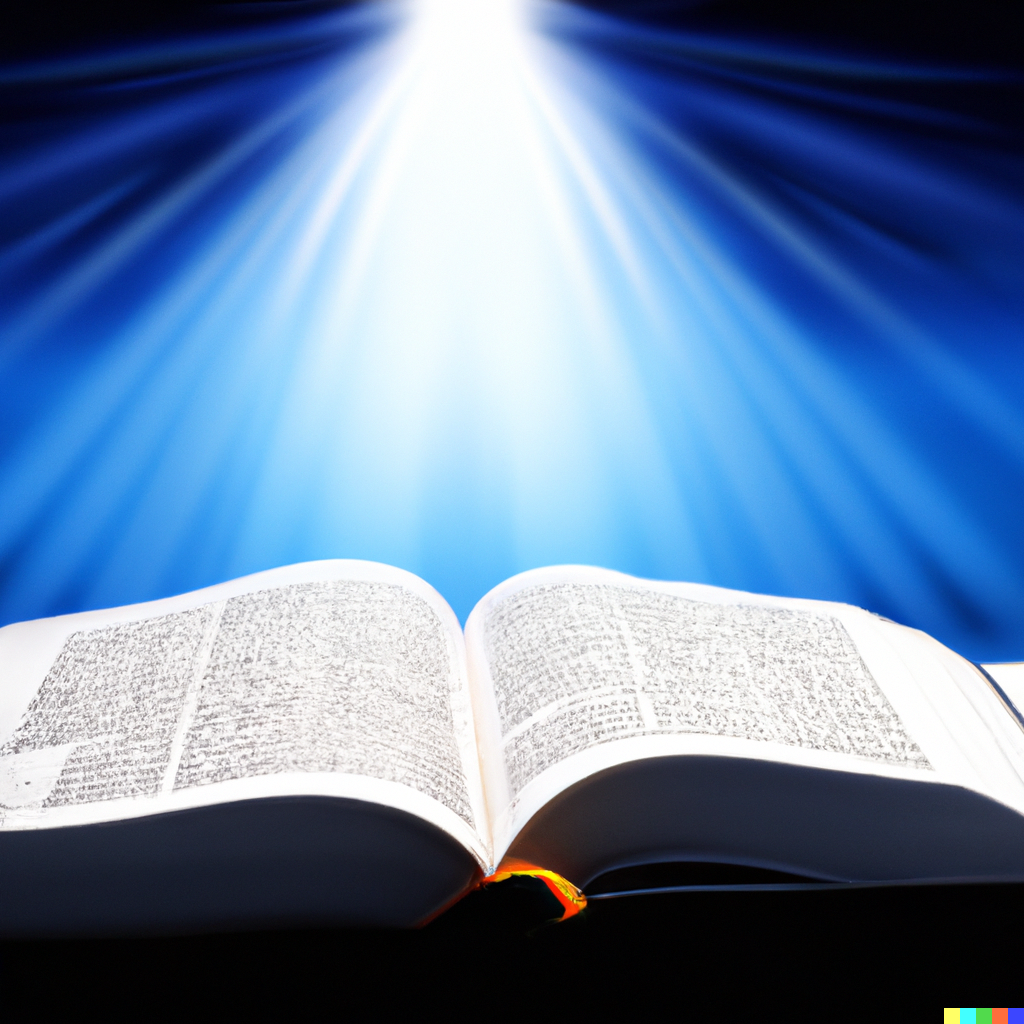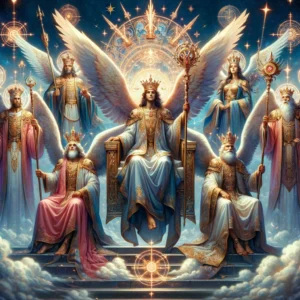
Angelology
Step into the enchanting world of Eastern Orthodox theology, where angelology takes center stage.... View more
Dominions
-
Dominions
Dominions: The Divine Orchestration of Celestial Duty Hold the role of leadership among angels, orchestrating the duties of celestial beings to enact God’s will, symbolized by their regal attire and scepters.
“In extrabiblical literature, κυριότης occurs only very rarely. When it does, it has the meanings of ‘lordship, rule’ and ‘special meaning’. It is only in writings influenced by the NT that the term is used to refer to a class of angels; see the many references in Lampe’s PGL 788b. When in a fragment of the originally Jewish Apocalypse of Zephaniah the author is said to have been brought up into the fifth heaven where he saw “angels who are called lords” (ἀγγέλους καλουμένους κυρίους, quoted by Clement of Alexandria, Strom. V 11, 77, 2), we may have here a kind of Jewish precursor of the Christian usage of κυριότης, but the origin of this passage remains debated (contrast the opinion of Bietenhard 1951:105 n.2 with O. Wintermute in OTP I 508 n.b), although Acts 10:4 (κύριε said to an angel) would seem to corroborate its Jewish character. The same uncertainty attaches to the ‘dominions’ mentioned as a class of angels in the longer recension of 2 Enoch 20:1, handed down only in an Old Church Slavonic version, and to the ‘angels of dominions’ in 1 Enoch 61:10, preserved only in a (Christian) Ethiopic translation (W. Foerster, TWNT 2 568). Also the list of angelic powers (among which κυριότητες) in the originally Jewish prayer in the Apostolic Constitutions VII 35, 3 is suspect since it may well derive from Col 1:16. The occurrence of ‘dominions’ in the angelic list of Test. Adam 4:6 is not very helpful either since it is found in only one manuscript of the Syriac version. If (some of) these passages could be proved to be of Jewish origin, the NT authors would reflect Jewish usage here, as is also the case with the other designations of angelic classes (Bietenhard 1951:105; for the use of abstract instead of concrete nouns see Foerster in TWNT 3 1096). That these (evil?) angels were originally regarded as powerful ‘Lords’ is apparent from this designation (Schroeger 1981:821).” (1)
“Jubilees, § 15: Over all [the Gentile nations] hath [God] set spirits as lords’ (cf. Sir 17:17); in Test. XII. Patr. Levi 3, ‘In the heaven next to God are thrones (θρόνοι), powers (ἐξουσίαι),’ angels being, in the same passage, assigned to each of the first six out of the seven heavens, in descending order; in Enoch 6:10, ‘The host of the heavens and all the holy ones above, and the host of God … all the angels of power, and all the angels of principalities,’ etc. Christian Fathers, such as Origen, Ephrem Syrus, Pseudo-Dionysius, accept similar though varying gradations (see Lightfoot, Col 1:16)” (2)
“Mentioned at Eph. 1:21; Col. 1:16 (cf. KJV, Jude 25; RSV “authority”) in conjunction with thrones, principalities, and authorities, dominion (Gk. kyriótēs; cf. kýrios “lord”) appears to designate an order or hierarchy of angels (cf. Eph. 6:12). Paul here insists that Christ alone is the mediator between the Creator and creation, having the full authority of God.”(3)
Sources:(1) Van der Horst, P. W. “Dominion.” Ed. Karel van der Toorn and Bob Becking. Dictionary of deities and demons in the Bible 1999: 262. Print.(2) Massie, John. “DOMINION.” Ed. James Hastings et al. A Dictionary of the Bible: Dealing with Its Language, Literature, and Contents Including the Biblical Theology 1911–1912: 616. Print.(3) Myers, Allen C. The Eerdmans Bible dictionary 1987: 290. Print.-
This discussion was modified 1 year, 10 months ago by
Justinian of Arizona.
-
This discussion was modified 1 year, 10 months ago by
Justinian of Arizona.
-
This discussion was modified 1 year, 10 months ago by
Justinian of Arizona.
-
This discussion was modified 1 year, 10 months ago by
Log in to reply.


